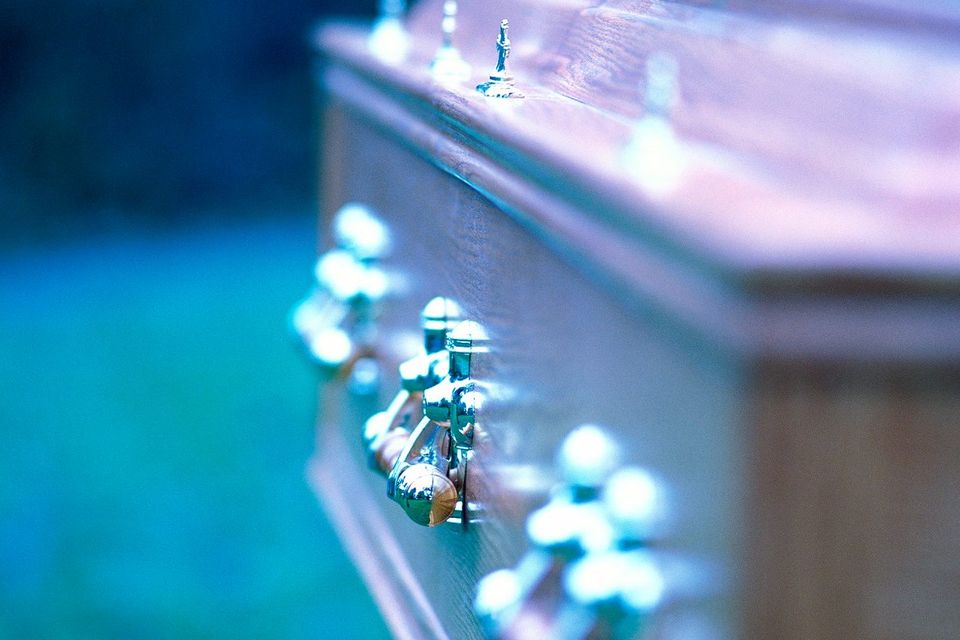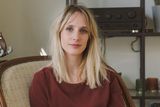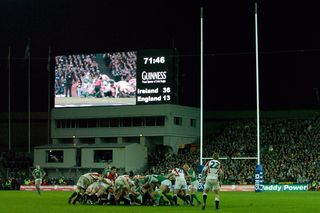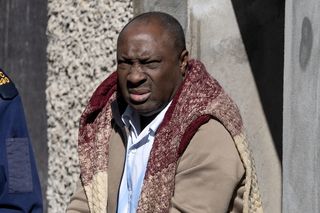Coping with Grief: 'I took a few small things home with me from the house where I last heard him breathe'
David Diebold writes about coping with grief
I see dead people. From where I'm sitting, I easily count five.
They seem to crowd in, one grinning, another raising a glass of what's probably bourbon. Father, uncle, grandfather, friend. They're all here, jostling for position. Desk space is becoming extremely limited.
It started a few years ago when the dad I called Bill died, and I took a few small things home with me from the house where I last heard him breathe at the young age of 62.
I took his Harley motorcycle helmet, leather waistcoat, and the biker gloves that still smelled of his hands, all sun-warmed skin and Eau Sauvage; things that seemed to vibrate in my arms, almost unbearably heavy with his presence.
They took pride of place on walls and mantelpieces, quickly joined by photos, enlarged and framed, so that every room I went into made me well with warm pangs of recognition and remembrance.
When the grandfather I called Dad died, I found a compass he'd used on our hikes when I was nine, the leather on the strap worn smooth from his hands. I took books from his office before everything else was boxed up to be sold - books about jazz and the etymology of words. His fingerprints are still on the sticky tape holding together the binding on one.
These things almost mutter and hum, whistling under their breath just as the strong flourish of his signature dances across their title pages.
Dad's photo, framed, joined Bill's on the mantel, the former admonishing this decision with silent, raised eyebrows, the latter cheekily toasting it from a golf cart with a low-ball glass of Jack Daniels. It was already the longest the two of them had ever been in a room together. Better late than never.
On my desk is a photo from the 1930s of Dad and his kid brother, ankle deep in a tin wash tub and scrubbing down a dog under a hand-pump. The 80-year-old photo, though sepia with time, is crystal clear. Wet puddles glisten around them, summer leaves in sharp relief against the sky above.
Dad's old Oxford dictionary sits in silent judgement to my left, battered with use (not mine), behind it an antique tuning lever, which I can't look at without seeing Dad on his back on the floor, front of the upright piano removed to one side and him cursing into its ancient, tuneless guts.
There's a stack of books about chess, with hand-notated strategies inside, though I never inherited the porcelain chess pieces that went with them, all rich red and alabaster white, carved to look like Normans; pieces I'd squint over, my skinny fists clenched, as Dad cleared his throat from the other side of the board.
These scenes play out in the air like holographic films on a loop, over and over. It's emotionally deafening, a cacophony of memories, yet still not enough. Never enough.
As the year just gone unfolded into an entire succession of funerals, I'd rush home to dig in bookshelves or among old photos, haphazard music and films, to find things of significance to the people I'd lost, some of them gifts, some borrowed and never returned, each suddenly given new priority of place.
WHISPERING
I've added books about angling, The Great Rock Discography, the French film Rififi, all of them propped up like exhibits and whispering to me in the voices of the people who used them.
I have coveted, collected and surrounded myself with these things. They have been my mementos mori, reminding me every day of the dead I will never see again and the death I inevitably face, occasionally to the exclusion of real-life relationships just on the other side of my door.
A stranger walking into these rooms might mistake this collection as the whimsical souvenirs and studies of a man of broad interests. But sometimes I feel like no more than the sum of the people I've known; an empty vessel made of meat, pitifully aching for the company of bones.
Today was the sixth funeral in 12 months of someone I knew and liked. It was also the first day that I've seen a blue sky, from sunset to sunrise, since I care to remember.
I've rarely seen so many funeral-goers so young, so sad and yet somehow, so hopeful, the eulogies seeming to be about seizing life, not dwelling in the past, in loss or in pain.
Turning around, away from my crowded desk, I see a face there so clearly, so beautiful, so alive.
"I'm leaving for my art class," says my daughter.
"Hold on," I tell her, "I'll walk you out. I just have a little clearing up to do."
I watch her turn and leave with a little skip, then I turn back, pick up an empty box, and begin gathering up books and picture frames.
Join the Irish Independent WhatsApp channel
Stay up to date with all the latest news















